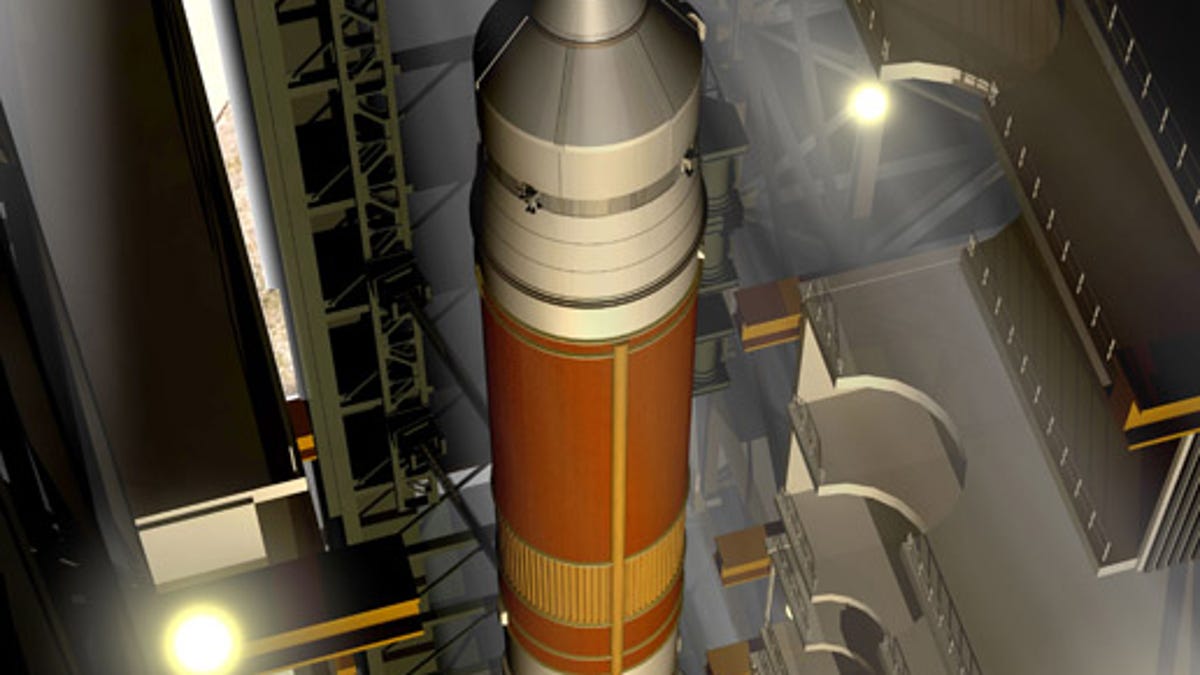Obama considers linking Defense Dept. with NASA
President-elect is reportedly considering tearing down some of the walls between the two groups to make the U.S. more competitive with China in space exploration.

President-elect Barack Obama appears to be gearing up for a space race 2.0, this time with China.
Obama's transition team is considering doing away with some of the barriers that separate the U.S. Department of Defense and NASA, according to Bloomberg.
Citing people who've discussed the idea with the Obama team, Bloomberg says they believe collaboration between the country's civilian space agency and the military's space program would speed up the time in which the U.S. is able to send people back to the moon.
The main--and very costly--goal is to build a rocket that can carry Orion, NASA's next-generation spacecraft, to the International Space Station, the moon, and further out into the solar system. NASA has planned to use its new Ares I rocket for that purpose. Last year, it completed preliminary design review for the Ares rocket, which is slated to launch for the first time in 2015.
But Obama would like to get Orion in the air before then. Getting a working rocket system up and running will be critical to getting the U.S. back to self-sufficiency with its space programs. As it stands now, the current space shuttle is scheduled to retire in 2010. So if Orion launches with Ares as planned in 2015, this leaves a five-year period of time in which the U.S. will have to pay Russia to fly astronauts to and from the ISS. And that's assuming Orion (and Ares) are delivered on time. If history is any indicator, delays are likely if not guaranteed. And with added demands for federal funds due to the recession, it's unclear where NASA and some of its programs stand.
Bloomberg's sources suggest the Obama team believes the Defense Department (which spent about $22 billion in the last fiscal year) can share some of its resources to give NASA a boost--and that they're even considering scrapping development of the Ares rocket entirely in favor of using the Pentagon's Atlas or Delta rockets, which are much further along in development.
Whatever they decide, the incoming administration is likely feeling some pressure from China, which plans to land a robotic rover on the moon in 2012, with a manned mission to follow a few years later.

